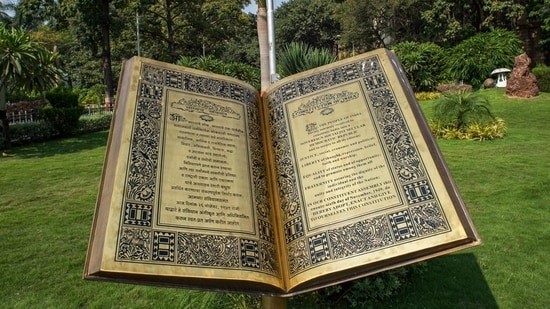Description

Disclaimer: Copyright infringement not intended.
Context
- Uttarakhand Chief Minister tabled the state’s proposed Uniform Civil Code Bill in the Legislative Assembly.
Provisions under Uttarakhand’s Uniform Civil Code Bill
Exclusion of Tribal Communities from UCC Bill
- Complexity of Personal Laws: In India, personal laws are intricate, with each religion adhering to its distinct regulations governing marriage, inheritance, and divorce.
- Objective of UCC: The Uniform Civil Code (UCC) aims to establish uniform laws applicable to all Indian communities concerning personal matters like marriage and inheritance.
- Exemption for Tribal Communities: However, the UCC Bill exempts tribal communities from its provisions. As per the Bill, Scheduled Tribes and individuals with protected customary rights under Part XXI of the Constitution are excluded.
- Criticism Over Tribal Customary Practices: This exemption acknowledges the unique customs of tribal communities, addressing concerns raised regarding the imposition of uniform laws on culturally diverse groups.
Regulation of Live-In Relationships
- Mandatory Declaration: The UCC Bill mandates partners in live-in relationships within Uttarakhand to submit a statement to the Registrar, irrespective of their residency status.
- Submission Procedure: Partners cohabitating must submit a "statement of live-in relationship" to the Registrar, who then conducts a summary inquiry to ascertain the relationship's legality.
- Penalty for Non-Compliance: Couples failing to submit the statement within a month face penalties, including imprisonment for up to three months or a fine of Rs 10,000, or both.
- Termination Notification: Furthermore, termination of the relationship requires informing the registrar by submitting a "statement of termination of relationship".

Prohibition of Bigamy
- Marriage Conditions: Section 4 of the Bill outlines five conditions for marriage, prohibiting bigamy by stipulating that neither party should have a living spouse at the time of marriage.
Marriage Age and Custom Exceptions
- Minimum Marriage Age: The Bill maintains the minimum marriageable age at 21 for men and 18 for women, as per the third condition under Section 4.
- Customary Exception: Under the fourth condition, the Bill retains the provision allowing marriage within "degrees of prohibited relationships" based on established customs, primarily in Hindu communities.
READ ABOUT UNIFORM CIVIL CODE: https://www.iasgyan.in/daily-current-affairs/uniform-civil-code-15#:~:text=The%20origin%20of%20the%20Uniform,of%20Hindus%20and%20Muslims%20be
|
PRACTICE QUESTION
Q. Discuss the Uniform Civil Code (UCC) in India, highlighting its significance and challenges in implementation. Evaluate its impact on personal laws, cultural diversity, and constitutional rights, and assess its role in promoting social harmony and gender equality.
|











